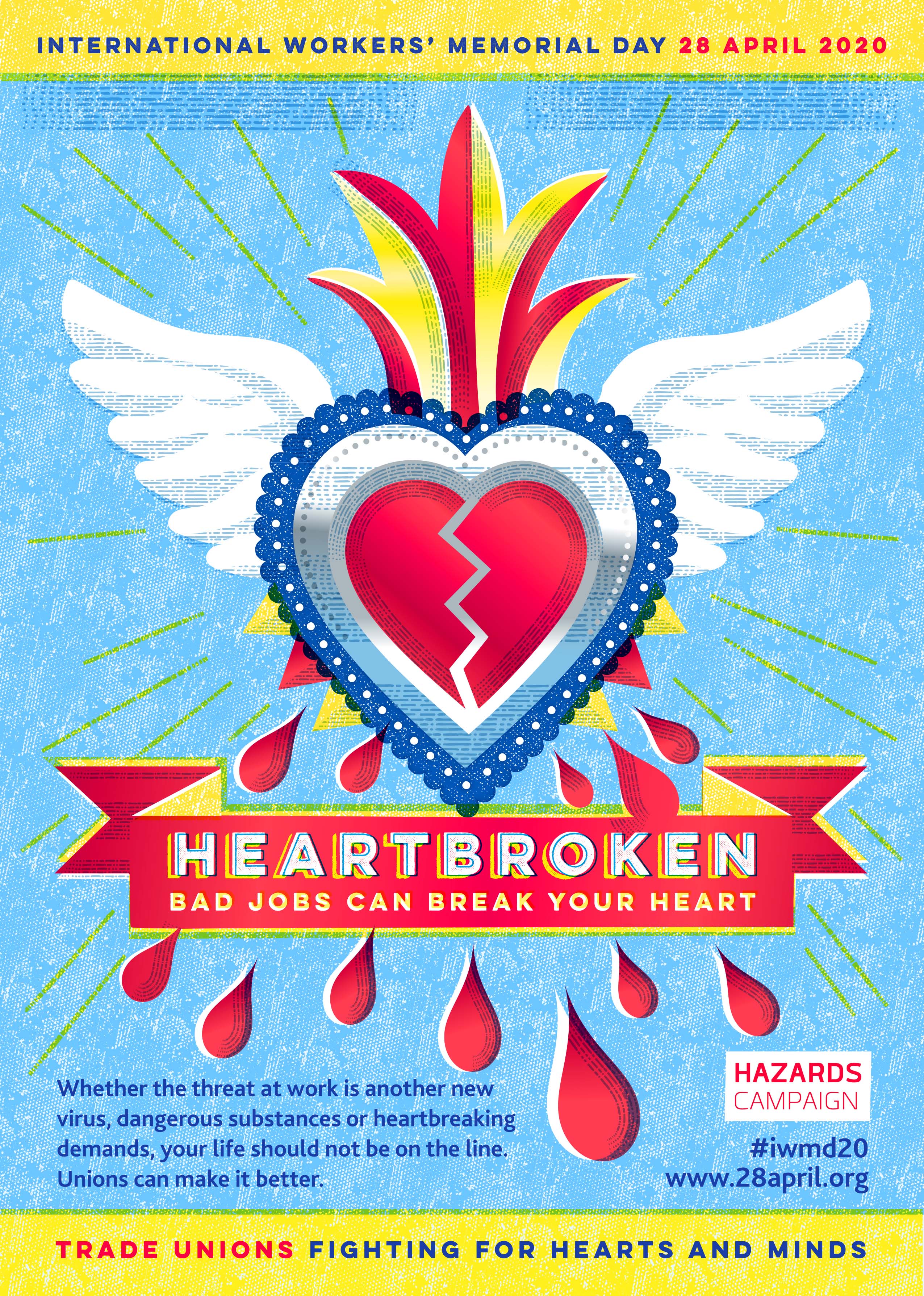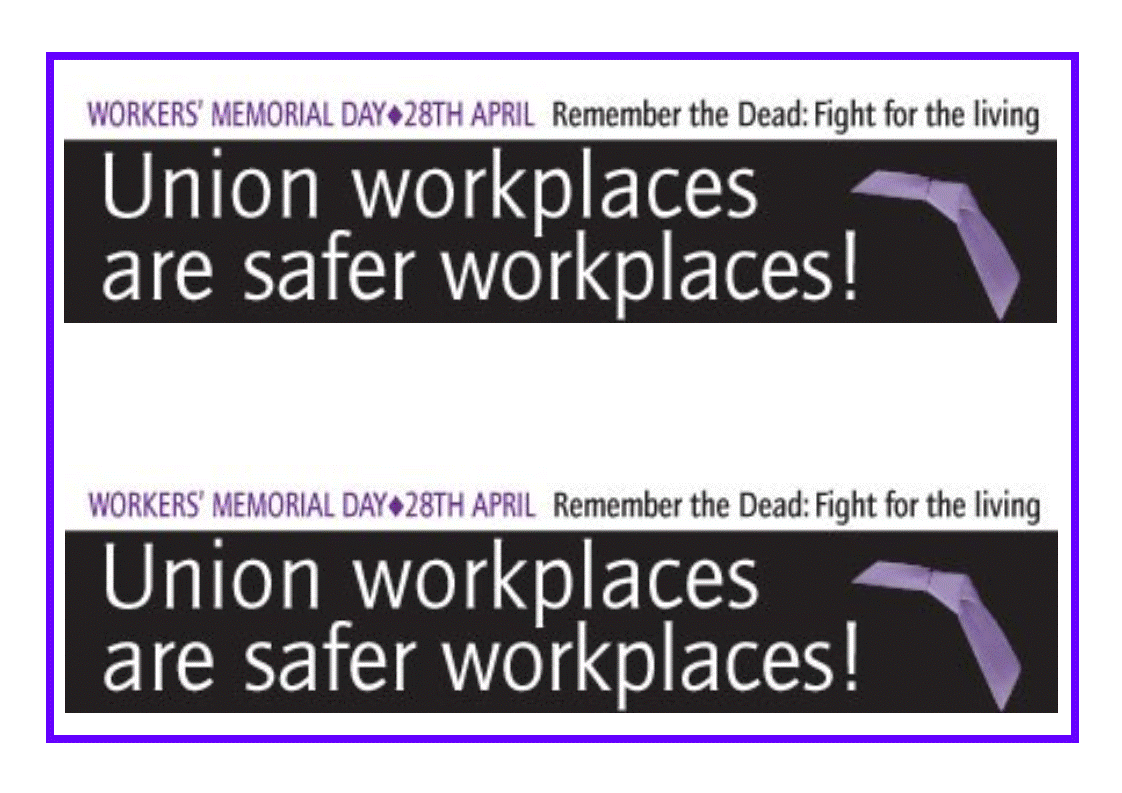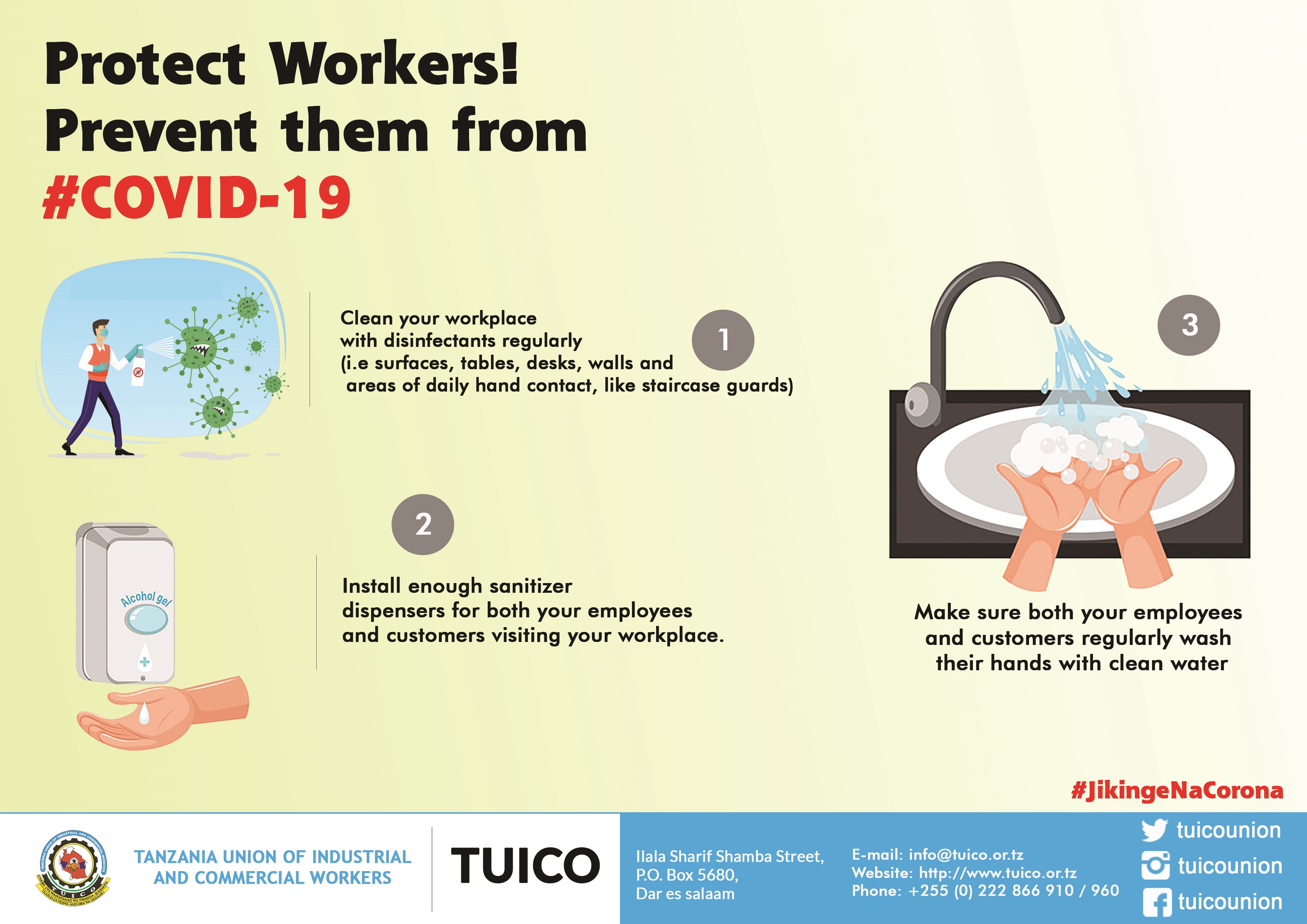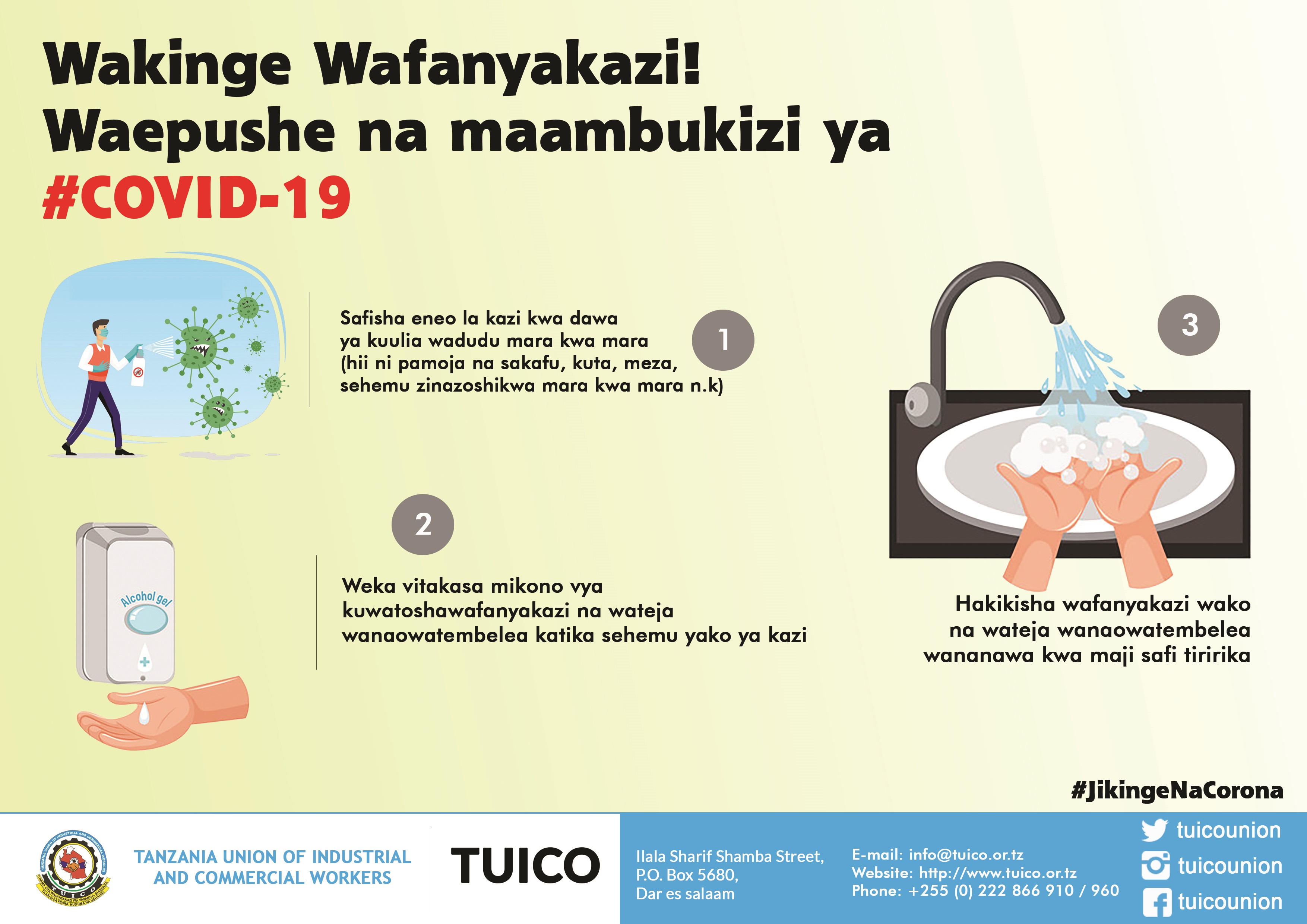As normal public events for 28 April won’t be possible because of measures to contain coronavirus/Covid-19, the UK’s national Hazards Campaign has published its own 10-point plan for mostly virtual action. The national campaign says marking International Workers’ Memorial Day has never been more important.
“Some workplace events may still go ahead but we are taking #iwmd20 online, developing a social media campaign that we want everyone to join in,” The campaign says. “This will keep the day and its perennial aims on the public and political agenda with the slogan to ‘Remember the Dead and Fight for the Living’.
This year’s international theme has been changed by the global union confederation ITUC to ‘Stop the pandemic at work’.” The campaign’s 10-point plan includes displaying a series of print-off-or-order posters and other graphics in your window, posting selfies with the hashtag #iwmd20 and telling the campaign what you are doing and where.
The Hazards Campaign poster message is: “Whether the threat at work is another new virus, dangerous substances or heartbreaking demands, your life should not be on the line. Unions can make it better.” Tag lines for the union-led event, which has become the world’s biggest health and safety campaign day, include ‘Unions – Fighting for your life’.
The campaign is also supporting the ITUC’s call for people to light a candle (safely) in their window on the evening of 28 April.
Hazards Campaign 28 April call to action. Campaign materials can be downloaded for free, printed off, used online and in social media campaigns, as can a series of Hazards Campaign display boards.
TUC 28 April 2020 news and resources webpage.
Global action and resources: ITUC/Hazards 28 April website.





